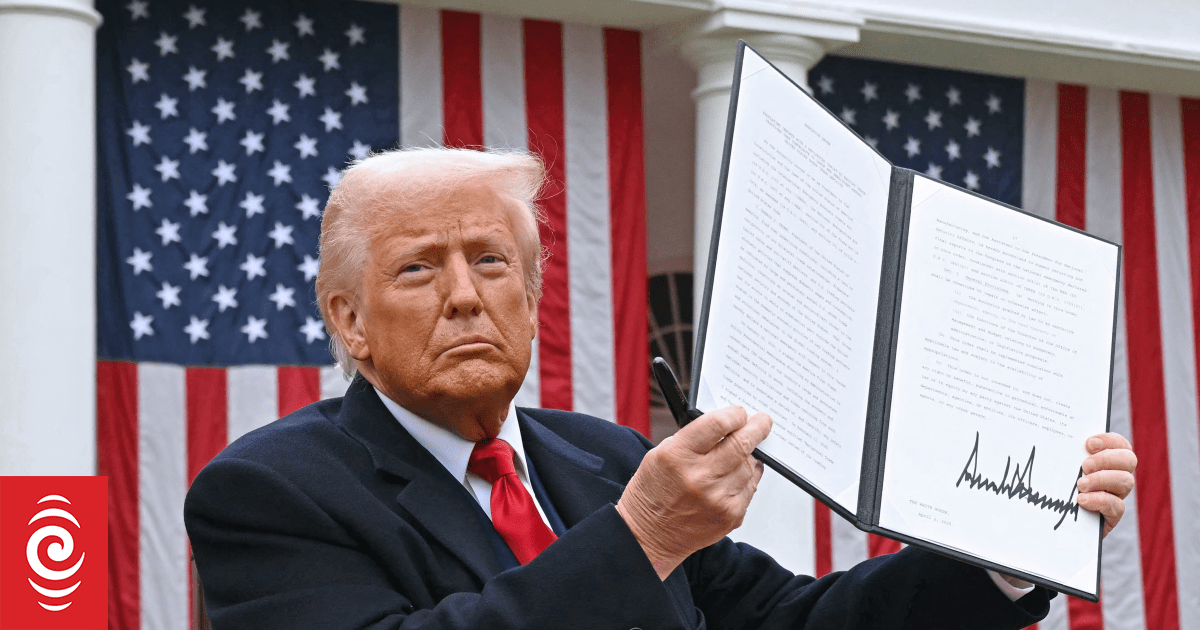US President Donald Trump holds a signed executive order after delivering remarks on reciprocal tariffs. (File photo)
Photo: SAUL LOEB
New Zealand exports to the US will face a 15 percent tariff rate, it has been announced.
The White House has revised its list of tariffs for particular countries and New Zealand has been put on a 15 percent base rate, up from the original 10 percent announced earlier.
Trade Minister Todd McClay says the government will try to push back on the US for a lower tariff rate.
McClay told Midday Report’s Charlotte Cook New Zealand has been hit as one of many countries that have a trade deficit with the US.
He says the deficit is small though – and he will be arguing a higher tarrif is unwarranted.
US President Donald Trump announced the tariffs back in April and said he they would be imposed on more than 125 countries.
Trade Minister Todd McClay
Photo: RNZ / REECE BAKER
Tariffs are paid by importers of products from other countries to their own governments, like taxes, effectively making imported goods more expensive for local consumers.
Advocates say they protect local economies, while detractors say they reduce trade and push up prices.
In announcing the initial range of tariffs in April, Trump caused confusion when he held up a chart saying New Zealand charged US goods a 20 percent tariff, which the New Zealand government denied.
It ended up being 10 percent, which Finance Minister Nicola Willis at the time called “extraordinary”. Prime Minister Christopher Luxon said New Zealand would not respond in kind.
Two-thirds of Kiwi businesses in a survey earlier this year thought the tariffs would have a more severe global impact than Covid-19 and the global financial crisis over the next 12 months.
Trump has repeatedly threatened a range of different tariffs on various nations since returning to the White House – most recently India, citing its own trade barriers and purchasing of energy and arms from Russia, and Canada, over its newfound support for Palestinian statehood.
More to come…

